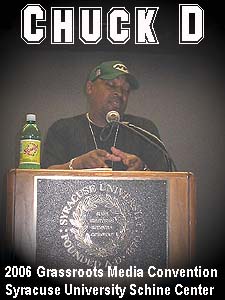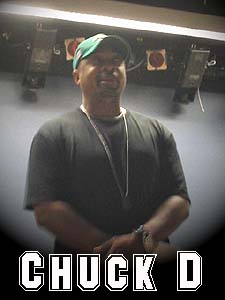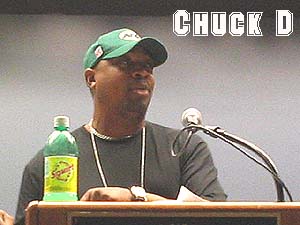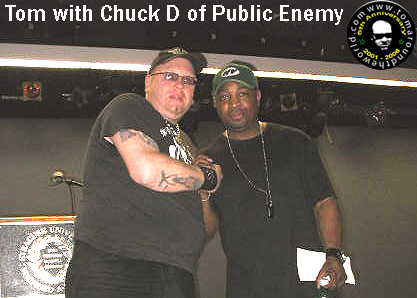|
Chuck D, is a Rapper, composer, actor, lecturor, author, radio personality and producer. He was born Carlton Douglas Ridenhour in Roosevelt, Long Island, on August 1, 1960. His parents were both political activists, and he was a highly intelligent student, turning down an architecture scholarship to study graphic design at Long Island's Adelphi University.
While in school, he put his talents to use making promotional flyers for hip-hop events, and went on to co-host a hip-hop mix show on the campus radio station with two future Public Enemy cohorts, Bill Stephney and Hank Shocklee.
Under the name Chuckie D, he rapped on Shocklee's demo recording, "Public Enemy No. 1," which caught the interest of Rick Rubin at Def Jam Records. In response, the now simply named Chuck D assembled Public Enemy, a group designed to support the force of his rhetoric with noisy, nearly avant-garde soundscapes.
With his powerful, authoritative baritone, Chuck D rhymed about all kinds of social problems, particularly those plaguing the black community, often condoning revolutionary tactics and social activism. In the process, he directed hip-hop toward an explicitly self-aware, pro-Black consciousness that became the culture's signature throughout the next decade.
Public Enemy debuted in 1987 with Yo! Bum Rush the Show, a dry run for one of the greatest three-album spans in hip-hop history.
Released in 1988, It Takes a Nation of Millions to Hold Us Back was acclaimed by many critics as the greatest hip-hop album of all time, and was instrumental in breaking rap music to white, alternative rock audiences.
Fear of a Black Planet (1990) and its follow-up, Apocalypse '91...The Enemy Strikes Black, consolidated Public Enemy's position as the most important rap group of its time.
There were storms of controversy along the way, most notably Chuck D's endorsement of the polarizing Muslim minister Louis Farrakhan, and group member Professor Griff's highly publicized anti-Semitic slurs.
As the frontman for Public Enemy, Chuck D became one of the most recognizable figures in the history of Hip-Hop.
|
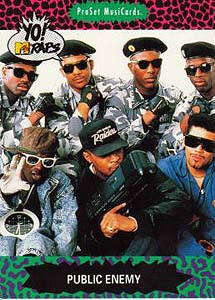 |







